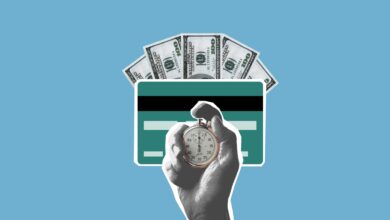13 Money Mistakes To Avoid In The New Year

Let’s be honest here. Every January, we all promise ourselves we’ll finally get our money situation together. Then February rolls around, and somehow we’re back to our old habits, wondering where our paycheck disappeared to. Sound familiar?
Here’s the thing: getting your finances on track isn’t about being perfect. It’s about stopping the bleeding from those sneaky money mistakes that keep draining your bank account year after year.
And trust me, after years of studying financial behavior and helping people fix their money mess, I’ve seen these same mistakes pop up over and over again.
The good news? Once you know what to watch out for, avoiding these pitfalls becomes way easier.
So grab your coffee (homemade, because we’re being financially smart now :)), and let’s talk about the money mistakes you absolutely need to dodge this year.
13 Money Mistakes To Avoid In The New Year
Look, nobody’s judging you for past financial slip-ups. We’ve all been there. But ignoring these common mistakes? That’s like leaving money on the table, and honestly, who does that?
Let’s break down the biggest money traps people fall into and, more importantly, how you can sidestep them completely.
1. Failing To Keep A Budget

Okay, I know what you’re thinking. “Budgets are boring and restrictive!” But here’s a reality check: not having a budget is like driving cross-country without a map or GPS. Sure, you might eventually get somewhere, but you’ll waste a ton of gas and probably end up lost.
Without tracking where your money goes, you’re basically flying blind. That $15 here and $30 there adds up faster than you think, and suddenly you’re broke two weeks before payday wondering what happened.
How to avoid it:
Track your income and expenses: You don’t need anything fancy. A simple spreadsheet works perfectly fine, or grab a budgeting app like Mint or YNAB. The key is actually doing it, not finding the perfect system.
Set spending limits: Once you know what’s coming in, decide how much goes where. Groceries, entertainment, that streaming service you forgot you had (we all have one). Give every dollar a job.
Review and adjust your budget regularly: Your budget isn’t set in stone. Life changes, expenses shift. Check in monthly and tweak things as needed. Think of it as a living document, not a prison sentence.
2. Giving In To Peer Pressure Spending
Ever notice how expensive it gets when you’re trying to keep up with your friends? Someone suggests dinner at that new trendy place, and suddenly you’re dropping $80 on mediocre pasta because everyone else is going.
Here’s something I learned the hard way: real friends won’t judge you for being smart with your money. And if they do? Well, that tells you something about them, not you.
Peer pressure spending is sneaky because it doesn’t feel like a mistake in the moment. You’re having fun, right? But when your credit card bill arrives, the fun evaporates pretty quickly.
How to avoid it:
Find free or low-cost alternatives: Be the person who suggests game night at home or a potluck instead of expensive restaurants. You’d be surprised how many people are secretly relieved when someone offers a budget-friendly option.
Set personal financial boundaries: Before you go out, decide what you’re willing to spend. If the group plans exceed that? It’s okay to sit it out or suggest something else.
Communicate openly: You don’t need to share your entire financial situation, but a simple “I’m on a budget right now” works wonders. Most people respect honesty way more than you’d think.
3. Ignoring Debt Repayments

Let’s talk about the elephant in the room. That debt you’ve been ignoring? It’s not going anywhere. In fact, it’s growing, thanks to interest that compounds faster than you can say “minimum payment.”
I get it. Looking at debt feels overwhelming and depressing. But pretending it doesn’t exist is like ignoring a leaky roof. The problem only gets worse and more expensive to fix.
Here’s the truth: every month you delay tackling debt, you’re literally throwing money away on interest charges. Money that could be going toward things you actually want or need.
How to avoid it:
Consider debt consolidation: If you’re juggling multiple debts with different interest rates, consolidating them into one loan with a lower rate can simplify your life and save you money. Check out options at SoFi or your local credit union.
Make at least the minimum payment: This should be non-negotiable. Missing payments tanks your credit score and racks up penalties. Treat it like paying your rent or mortgage.
Tackle high-interest debts: Credit card debt is the worst offender, often charging 18-25% interest. Pay these off first while making minimum payments on everything else. The math here is simple: kill the expensive debt first.
4. Overlooking Small Expenses
You know what’s wild? Most people can tell you their rent or mortgage payment down to the penny, but they have no clue how much they spend on coffee, snacks, or random Amazon purchases each month.
Those small expenses are financial termites. Individually, they seem harmless. But collectively? They’re eating through your budget without you even noticing.
I once tracked every single expense for a month and nearly fell off my chair. Those “just $5” purchases added up to over $300. That’s a car payment. Or a nice chunk toward an emergency fund.
How to avoid it:
Set limits on discretionary spending: Create a “miscellaneous” category in your budget and give yourself a set amount. Once it’s gone, it’s gone until next month.
Cut unnecessary daily habits: That daily $6 latte? Making coffee at home saves you around $150 monthly. Packing lunch instead of buying it? Another $200 saved. These aren’t small potatoes.
Track every expense: Yes, every single one. Use an app like PocketGuard or just keep receipts for a month. The awareness alone will change your spending behavior.
5. Indulging In Impulsive Shopping

Raise your hand if you’ve ever bought something because it was on sale, not because you needed it. Yeah, me too. We’ve all been there, standing in line with something we didn’t plan to buy, convincing ourselves it’s a “good deal.”
But here’s the thing about impulse purchases: they’re rarely good deals when you didn’t need the item in the first place. Spending $50 on something marked down from $100 isn’t saving $50. It’s spending $50 you wouldn’t have spent otherwise.
Retailers know exactly how to trigger impulse buys. The candy at the checkout line? Strategic placement. Those “limited time offers” in your email? Psychological manipulation. Don’t fall for it.
How to avoid it:
Wait before buying: Institute a 24-hour rule for any unplanned purchase over $25. Sleep on it. If you still want it tomorrow, maybe it’s worth buying. Most times? You’ll forget about it entirely.
Make a shopping list: Whether you’re grocery shopping or browsing online, have a list and stick to it like your financial life depends on it (because it kind of does).
Avoid things that tempt you: Unsubscribe from promotional emails. Delete shopping apps from your phone. Don’t browse stores when you’re bored. Remove the temptation, and you remove the problem.
6. Overusing Credit Cards

Credit cards are like chainsaws. Super useful tools when used properly, but dangerous when handled carelessly. The problem is that swiping a card doesn’t feel like spending real money, so it’s easy to go overboard.
I’ve seen people with great incomes drowning in credit card debt because they treated their cards like free money. Newsflash: it’s not free. It’s expensive borrowed money, and the interest rates are designed to keep you in debt forever.
Using credit to fund a lifestyle you can’t actually afford is a fast track to financial disaster. The bill always comes due, and it’s always bigger than you expect.
How to avoid it:
Pay your balance monthly: This is the golden rule. If you can’t pay it off completely at the end of the month, you can’t afford it. Period. Carrying a balance means paying interest, which is just burning money.
Set a credit limit for yourself: Just because your credit card company gave you a $10,000 limit doesn’t mean you should use it. Set your own limit based on what you can actually pay off.
Use credit for emergencies only: Or for planned purchases that you already have the money for (to earn rewards points). Don’t use credit cards to buy things you can’t afford right now. That’s a recipe for debt disaster.
7. Neglecting To Automate Your Savings

Here’s a little secret from behavioral finance: you can’t spend money you never see. When saving is manual, it requires willpower. And willpower is a limited resource that runs out right around the time your favorite store has a sale.
Automating your savings removes the decision-making process entirely. The money moves from checking to savings before you even have a chance to spend it. Out of sight, out of mind, and into your future net worth.
Think of it this way: you pay your bills automatically, right? Why not pay yourself first with the same automatic system?
How to avoid it:
Treat savings like a bill: It’s not optional. It’s not “whatever’s left over.” It’s a mandatory payment to Future You, who will be very grateful you did this.
Increase savings over time: Start with whatever you can manage, even if it’s just $25 per paycheck. Then bump it up by $10 every few months. You’ll barely notice the difference, but your savings account definitely will.
Set automatic transfers: Most banks let you schedule automatic transfers. Set it for the day after payday, and let technology do the heavy lifting. Ally Bank and Marcus by Goldman Sachs make this super easy.
8. Skipping Emergency Savings

Pop quiz: What happens when your car breaks down and you don’t have emergency savings? You put it on a credit card and pay interest on top of the repair cost. Congratulations, you just made an expensive problem even more expensive.
An emergency fund isn’t sexy or exciting. It just sits there, doing nothing, until the day it saves your financial life. And that day will come. Cars break. People get sick. Jobs end unexpectedly. Life happens.
Not having emergency savings means every unexpected expense becomes a crisis. With emergency savings? It’s just an inconvenience you can handle without derailing your entire financial plan.
How to avoid it:
Start with a small goal: Don’t worry about the “6 months of expenses” advice yet. That’s intimidating. Start by saving $1,000. That covers most common emergencies and gives you a foundation to build on.
Build up over time: Once you hit $1,000, aim for one month of expenses. Then two. Then three. Eventually, you’ll get to that 3-6 month cushion. It’s a marathon, not a sprint.
Prioritize your emergency fund: Before investing, before paying extra on low-interest debt, before anything else, build this safety net. It’s the foundation of financial security.
9. Setting Vague Or Unrealistic Goals
“I want to save more money this year.” Cool. How much? By when? For what purpose? Without specifics, that goal is about as useful as a chocolate teapot.
Vague goals don’t motivate anyone because there’s no way to measure progress or know when you’ve succeeded. Your brain needs concrete targets to work toward, not fuzzy wishes.
On the flip side, setting a goal to save $50,000 this year when you make $40,000 is just setting yourself up for failure and disappointment. Goals need to be challenging but achievable.
How to avoid it:
Set specific, measurable goals: Instead of “save more,” try “save $3,000 for a vacation to Hawaii by December.” Now you have a target, a purpose, and a deadline. That’s a real goal.
Track your progress: Use a visual tracker, a spreadsheet, or an app like Goodbudget. Seeing progress is incredibly motivating and helps you stay on track.
Break goals into smaller bits: That $3,000 vacation fund? Break it down to $250 per month. Suddenly it feels way more manageable than one big scary number.
10. Paying Off Debt Too Aggressively
Wait, what? Isn’t paying off debt a good thing? Absolutely. But throwing every spare penny at debt while ignoring retirement savings and emergency funds? That’s a problem.
I’ve seen people pay off debt aggressively, then immediately go back into debt when an emergency hits because they had no savings. They essentially paid off debt with money they needed for other things.
Financial health requires balance. Yes, pay off debt. But also build savings, contribute to retirement, and maintain some quality of life. Going full scorched-earth on debt often backfires.
How to avoid it:
Balance debt and savings: A good rule of thumb: put at least 5% toward retirement and build a small emergency fund ($1,000) before attacking debt aggressively. This prevents you from borrowing again when life happens.
Follow a debt repayment plan: The debt snowball method (smallest debts first) or avalanche method (highest interest first) both work. Pick one and stick with it, but don’t sacrifice everything else.
Review your budget regularly: Make sure your debt payments aren’t strangling your ability to handle other expenses or save for important goals. Adjust as needed.
11. Failing To Use The Right Financial Tools

Managing money with the wrong tools is like trying to cut a steak with a spoon. Sure, you might eventually get the job done, but it’s going to be frustrating and inefficient.
We live in an age where technology can automate and simplify almost every aspect of personal finance. Not taking advantage of these tools is just making your life harder than it needs to be.
The right tools don’t just save time. They catch mistakes, provide insights, and help you make better decisions. FYI, most of them are free or very cheap.
How to avoid it:
Use budgeting apps: Apps like Mint, YNAB, or even a simple Google Sheets template can transform your financial management. Find one that fits your style and actually use it.
Set up automatic bill payment: Late fees are stupid taxes on disorganization. Automate your bills and never pay another late fee again. Your bank or the billing company can usually set this up in minutes.
Use investment apps: If you’re investing, platforms like Vanguard or Fidelity offer low-cost options with great tools. For beginners, robo-advisors like Betterment or Wealthfront can automate the whole process.
12. Not Saving For Retirement

“I’m too young to think about retirement.” That’s what everyone says until they’re 50, panicking because they have nothing saved and retirement is suddenly very real and very close.
Here’s the brutal math: thanks to compound interest, money you save in your 20s and 30s works way harder than money you save in your 40s and 50s. Starting late means you need to save dramatically more to catch up.
Retirement might feel like a distant concept, but Future You is going to exist, and they’re going to need money to live on. Don’t leave them high and dry.
How to avoid it:
Start saving as early as possible: Even $50 per month in your 20s can grow to over $100,000 by retirement thanks to compound interest. Time is literally money when it comes to retirement savings.
Increase contributions after a specific time: Every time you get a raise, increase your retirement contribution by 1-2%. You won’t miss money you never got used to spending, and your future self will thank you.
Contribute to employer-sponsored retirement plans: If your employer offers a 401(k) match, contribute at least enough to get the full match. That’s literally free money. Turning down free money is just silly.
13. Neglecting To Plan For Taxes

Taxes are like that friend who always shows up uninvited. You know they’re coming, but somehow you’re still surprised when they arrive demanding money.
Whether you’re employed, self-employed, or have side income, failing to plan for taxes can result in a nasty surprise come April. And by surprise, I mean a bill you can’t pay, possible penalties, and a whole lot of stress.
The tax code is complicated, sure. But ignoring it doesn’t make it go away. It just makes dealing with it more expensive and stressful later.
How to avoid it:
Plan for tax payments: If you’re self-employed or have side income, set aside 25-30% of that income for taxes. Keep it in a separate savings account so you’re not tempted to spend it.
Ensure you keep accurate records: Track all income and expenses throughout the year. Come tax time, you’ll be grateful you did. Apps like QuickBooks Self-Employed or Expensify make this painless.
Consult a tax professional: If your tax situation is even moderately complex, paying a CPA or using software like TurboTax is worth every penny. They’ll find deductions you didn’t know existed and potentially save you way more than they cost.
Final Thoughts
Alright, we’ve covered a lot of ground here. From budgeting basics to retirement planning, these money mistakes might seem overwhelming when you look at them all together. But here’s the thing: you don’t need to fix everything overnight.
Pick one or two areas where you know you’re struggling and focus there first. Maybe it’s finally creating that budget or automating your savings. Small improvements compound over time, just like interest (but in a good way).
The mistakes we covered aren’t exhaustive. There are plenty of other ways to mess up your finances (trust me, I’ve researched them all). But these are the heavy hitters, the ones that cause the most damage to the most people.
And look, if you’re feeling overwhelmed or your financial situation is particularly complex, there’s absolutely no shame in getting professional help. A certified financial planner can provide personalized advice that a blog post simply can’t match.
This year can be different. Not because you’re going to be perfect (spoiler: you won’t be), but because you’re going to be more aware, more intentional, and more strategic with your money. That’s how real change happens.
So here’s to making this year the one where you finally get your financial act together. You’ve got this. And hey, if you mess up along the way? That’s okay too. Just dust yourself off and keep going. Future You is counting on Present You to make some smart moves.








